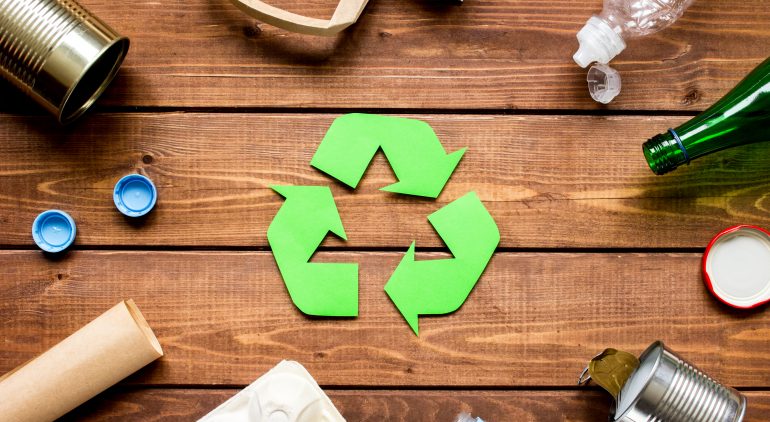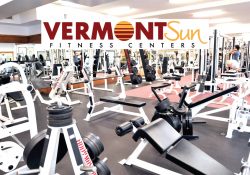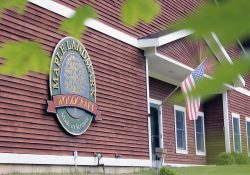
Reducing and Reusing Before Recycling
Significant progress has been made since the development of modern recycling programs in the late 1960s and early 1970s. Most in our community have access to curbside recycling services and we’re rarely more than a few steps away from a recycling bin, even in public places. Thanks to streamlined all-in-one recycling services offered by the Addison County Solid Waste Management District which save us from having to sort our recyclables, it’s safe to say that recycling is pretty darned convenient these days. So convenient, in fact, that we might have forgotten about those other two “R’s.” We all know that recycling is the right thing to do, but perhaps we could use a reminder that the most effective way to reduce waste is to not create it in the first place.
Recycling an item definitely beats sending it to the landfill, but it still takes a significant amount of energy to recycle an item and transform it into something “new.” As a result, reduction and reuse are the most effective ways you can save natural resources, protect the environment and save money.
The Benefits of Reducing & Reusing:
- Prevent pollution caused by reducing the need to harvest new raw materials.
- Save energy.
- Reduce greenhouse gas emissions that contribute to global climate change.
- Save money.
- Reduce the amount of waste that will need to be recycled or sent to landfills and incinerators.
- Allow products to be used to their fullest extent.
Ideas to Help You Reduce & Reuse
- Buy used and refurbished when possible. You can find everything from clothes to electronics to building materials at specialized reuse centers, architectural salvage yards, and consignment shops. Often, used items are less expensive and just as good as new. Middlebury has several wonderful thrift stores and if you’re in Burlington, be sure to check out ReSOURCE.
- Look for products that use less packaging. When manufacturers make their products with less packaging, they use less energy and fewer raw materials. This reduces waste and costs. These extra savings are often passed along to the consumer.
- Buy in bulk. When you bring your own containers to buy bulk items, you save packaging waste and you can also save money. At the Co-op, you can bring your own container to buy foods such as flour, grains, maple syrup, and honey in the Bulk department; soaps, lotion, and bath salts in the Wellness department; on-tap beverages such as kombucha, coffee, and tea; and Deli items from the salad bar or hot bar.
- Buy items that are reusable rather than disposable and incorporate reusable items into your daily routines. For example, you can bring your own silverware and coffee mug to work and bring your own shopping bags to the store.
- Maintain and repair products , clothing, tires, and appliances, so that they won’t have to be disposed of and replaced as frequently. Think quality over quantity when purchasing these kinds of items.
- Borrow, rent, or share items that are used infrequently, such as party decorations, tools or furniture. Front Porch Forum is a handy resource.
- Think twice before discarding an item. Consider alternative uses. The mesh bag your citrus came in can be reused for future produce purchases and that empty two-liter bottle can make a fun hanging planter.
- Plan ahead.Planning your weekly meals in advance, utilizing leftovers, and shopping the refrigerator first are great ways to reduce food waste. For more tips on reducing food waste, click here.
- Donate gently used items whenever possible. You can drop them off at a thrift store, or consignment shop, or you can post them to Front Porch Forum. Let your trash be someone else’s treasure!



